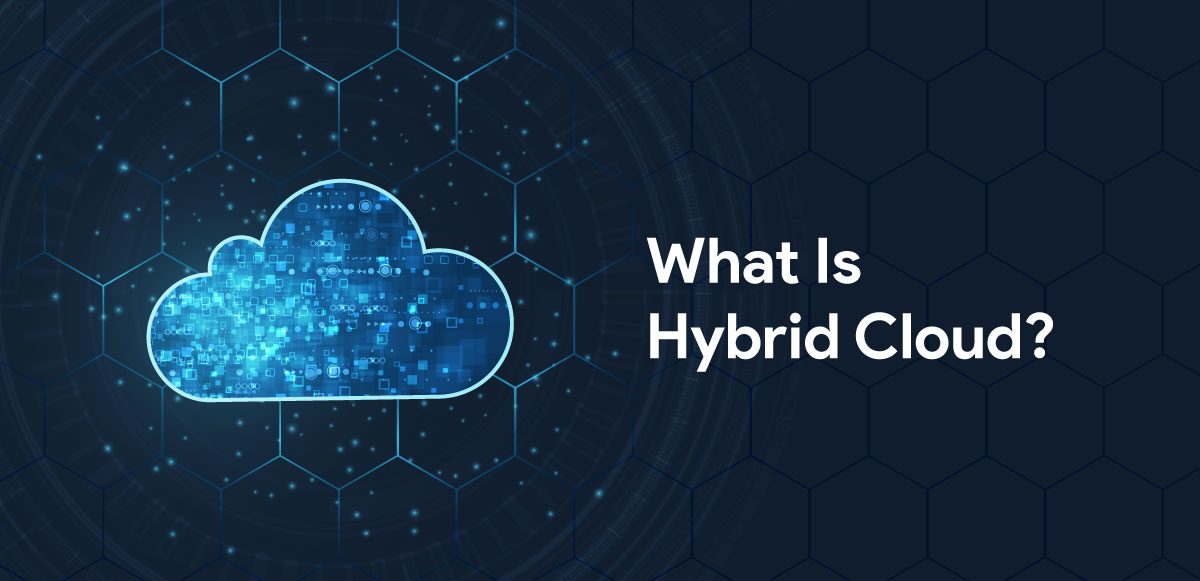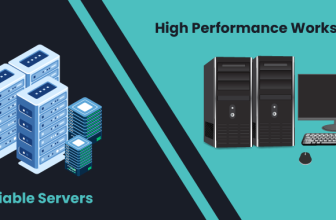
Exclusive Offer: Save Up to 40% on Dedicated Server Hosting!
Unlock unbeatable performance and savings! Enjoy up to 40% off on our dedicated server hosting plans. Limited time offer.
their data. It offers the possibility to run all the computing needs anytime anywhere flexibility, scalability, and cost-effectiveness. Cloud computing itself is at the basis of cloud computing implying delivery of computing services such as data storage and network, databases, and software, which makes it easier by making resources readily available and avoiding all the extensive infrastructure investment. Among the major milestones obtained within cloud computing is the idea of a hybrid cloud. Cloud computing most commonly employs either public or private cloud infrastructure. However, the hybrid cloud involves a mix of public & private clouds. In a hybrid cloud workspace, organizations can use third-party public cloud and on-premises, private cloud services to respond to their mostly diverse needs. This way of applying cloud computing is a possibility to utilize the scalability and the low cost of the public cloud while retaining control over sensitive information and critical applications through the private infrastructure.
Understanding Hybrid Cloud
A hybrid cloud is a cloud environment that uses both private and public clouds for easy data sharing across these cloud environments. A hybrid cloud consists of those functionalities that have a private infrastructure with some others hosted on the public cloud and these two environments are usually connected so that they operate smoothly.
It’s characterized by:
Flexibility: The hybrid cloud is flexible and permits both private and public clouds to be used. Thus, this makes it possible to structure infrastructure properties to meet particular requirements. For instance:
- Information that is considered to be confidential or those specific applications requiring high levels of governance and security can be kept in a private cloud.
- Public cloud can be a profitable option in this case allowing more flexibility and reduced fees for less sensitive jobs.
Scalability: The main advantage of using a hybrid cloud is scalability. When compared to on-demand cloud services, organizations can have scalability to access more resources or fewer resources depending on demand which significantly improves their capabilities. This is particularly useful because:
- It increases in managing sudden rises in visitors or demand and, thus, avoids direct expenses on new and additional infrastructure.
- Public cloud elasticity allows enterprises to actualize adaptability in this era to cater to any market change without having to incur unnecessary costs for either an excess of resources or underutilization.
The pivotal role of the hybrid cloud in modern IT infrastructure is undeniable.
- Optimization of resources: A hybrid cloud enables to formation of a balance between the security and control of private cloud environments and the scalability and price-efficiency of public clouds. This provides a way for organizations to manage resources most efficiently.
- Fostering innovation: Organizations can be empowered in management with the flexibility and scalability of the hybrid cloud for innovation. They may be able to advance some new ideas, test and run applications faster, and work on iterations more rapidly.
- Improved agility: The combination of on-premise and cloud environments offered by the hybrid cloud is the main advantage for businesses in terms of being agile and resilient to business changes. They can respond to market changes with minimal delay without having to deal with the immobility of the infrastructural obstacles.
The pivotal role of the hybrid cloud in modern IT infrastructure is undeniable.
- Avoiding vendor lock-in: Hybrid cloud models give the business flexibility to use cloud providers based on their requirements avoiding vendor lock-in. This guarantees customers the maximum choice needed to pick services with the best options for their expectations.
- Mitigating risks: Organizations can make themselves resistant to failures related to outages, data loss, or other service degradation by creating a multi-cloud environment. They are less prone to vendor-specific challenges.
Key Components of Hybrid Cloud
The core elements of a hybrid cloud include the adaptability system in which the good sides of the public and private clouds are obtained. With the increasing adoption of hybrid cloud solutions, companies are seeking to pursue flexibility, scalability, and control over their IT infrastructure in today’s digital space. At its core, a hybrid cloud consists of three main components: the public cloud environment, provided by outside suppliers, the organization’s private cloud, as well as the hybrid cloud management tools that help an organization in the use of both environments. Analyzing these constituents is fundamental for companies that would like to leverage all possibilities opened up by the hybrid cloud.
- Public Clouds:
The public cloud includes services provided by multiple big companies such as Amazon Web Services (AWS) and Microsoft Azure or Google Cloud Platform. These vendors build on large-scale infrastructures for data management, providing a wide variety of online services like computing power, storage, and networking. The public cloud services are generally scalable and put-as-you-need, which means that the organizations can adjust the use depending on the demand, so, this gives the organizations the way of cost efficiency. In this sense, public cloud services can be highlighted as virtual machines, databases, and content delivery networks (CDNs).
- Private Clouds:
The private cloud is the infrastructure that is owned by the organization and can be on the premise itself or a dedicated off-site data center. It offers benefits similar to the public cloud but within an exclusive space. This typical environment is primarily intended to satisfy particular security, statutory, or performance standards from the organization. Private clouds ensure more controlled usage of resources and data, thus they are preferable for sensitive workloads such as confidential data processing, matters of compliance with regulations, or designing of app-specific projects.
- Hybrid Cloud Management Tools:
Hybrid cloud management applications are software tools developed to facilitate the administration of both public and private clouds. These tools facilitate a common touch point to monitor, direct, and control workloads across disparate cloud ecosystems. These tools have capabilities in resource provisioning, workload migration, security management, and cost optimization. Some type of hybrid cloud management tools includes VMWare vRealize Suite, Microsoft Azure Arc, and Red Hat OpenShift.
Hybrid cloud management tools enable organizations to:
- Orchestrate Workloads: These technologies make it possible to shift workloads easily and without interruption from one public cloud to a private cloud based on reasons such as demand, cost, or performance requisites.
- Ensure Security and Compliance: These tools are directed to persistent security policy and regulation watching over all cloud environments and imposing standards making data protection and regulation observance rigid.
- Centralize Management: They act as a unified view of the cloud resources like inventory, which makes administration and maintenance a lot easier and the whole process miraculously more efficient.
- Optimize Costs: Through having access to utilization and spending data gathering from various clouds simultaneously, the companies can be optimized for costs by building a matching resource scale and by harnessing the cheapest cloud services.
Benefits of Hybrid Cloud
Flexibility:
One of the major benefits of the hybrid cloud is its adaptability. Organizations can scale their resources up or down according to demand, which helps in maintaining efficient utilization of fluctuating workloads. In peak periods they will require little extra resources from the public cloud to handle the high load, whereas, in the quieter times they will easily be able to scale back. This versatility offers organizations the computing power and storage they may need anytime without ever-provisioning it and incurring unnecessary costs.
Security:
A hybrid cloud provides a balanced security approach, which means that organizations can maintain their sensitive data within a private cloud environment at the same time leveraging the benefits of the public cloud for the rest of the less sensitive workloads. Critical data, such as customer data, intellectual property, or compliance data can be held in private cloud infrastructure where the security measures are under the organization’s control. However, on the other hand, workloads such as web applications or development environments that are not very sensitive can be hosted in the public cloud realm. This isolation of data helps in countering security risks, keeping scalability and flexibility.
Cost-effectiveness:
Hybrid cloud solutions give organizations the option to pay less for their cloud resources by the fact organizations can use both public and private cloud services Organizations can use the Hybrid approach to run the mission-critical workloads of their private cloud, that is, to ensure performance, compliance, and security, while less important workloads or burst capacity during peak demand can be outsourced to the public cloud. However, this agility in resource allocation improves the savings through the usage of payment for what you use eliminating the over-provisioning and exploitation of cost-effective public cloud services.
Challenges of Hybrid Cloud
Integration Complexity: The first and foremost problem associated with a hybrid cloud is the level of networking between the different clouds. Integrating on-premises infrastructure with public cloud services requires not only the right amount of strategic planning and execution but also attention to consistency, data flow, and performance across all utilized environments. Integration is often obstructed for organizations by incompatible APIs, network latency, and data synchronization problems. Besides this, IT teams may encounter issues as they deal with multiple cloud systems and coordination among these systems.
Skill Gaps and Training Needs: Hybrid cloud management and adoption is a complex task that companies may not already possess the skills and knowledge for. IT staff need to be upskilled in aspects like cloud architecture, DevOps, automation, and security to competently operate hybrid cloud deployments. On the other hand, a skills shortage and difficulties in recruiting or reskilling staff remain for many enterprises. The hybrid cloud skills training of employees that includes techniques and practices can be time-consuming and expensive but it is still essential. Another challenging factor is that they also have to keep up with cloud technologies and updated techniques.
Data Management and Security Concerns: Data management and security of hybrid cloud mode is one of the major issues. Because data is in different clouds and on-premises infrastructure, companies need to have strong frameworks for data governance, privacy, and protection. Handling data consistency, integrity, and access control is very complex when compared with the management of hybrid cloud deployments. Furthermore, implementing compliance with the regulatory regulations (GDPR, HIPAA, or PCI DSS) is superimposed on the intricacy. Security issues are caused by expanded attack surfaces, wrong configurations, and data securing in transit in remote environments.
Use-Cases
Disaster Recovery and Backup:
A hybrid cloud is the ideal solution for Disaster Recovery & Backup. Organizations can generate copies of their applications and critical data, which can be found in their Public Cloud & Onsite Infrastructure, and in case of any disaster, it will be a reliable backup choice. Organizations that are using the cloud to leverage scalability and reliability can do so to maintain data availability and business continuity even when the primary data center failures take place. Hybrid cloud DR options are very flexible and, at the same time, cost-efficient with a shorter recovery period range as compared to the on-premises solutions.
DevOps and Testing Environments:
A hybrid cloud is an ideal setup for testing mechanisms and the use of DevOps practices. The development teams can use not only the scalability but also the agility of the public cloud for the on-demand development and testing environments without significant upfront investment in hardware upgrades. They can quickly set up virtual machines, containers, or serverless methods to perform tests of new applications, features, or upgrades. The moment the testing is completed, the applications can be rapidly deployed to the on-premises or production environments.
Regulatory Compliance:
Hybrid Cloud solutions are used to solve the issue of regulatory compliance in the most effective ways in organizations. Some industries like healthcare, finance, and government do not take any risks with data privacy, location, or security. The Hybrid Cloud lets the organization store their important data in a private cloud environment and at the same time, It allows the use of the public cloud’s cost-effectiveness and elasticity for the data that is not confidential and sensitive. Thus, this allows companies to keep their data confidential while at the same time, also meeting regulatory needs like GDPR, HIPAA, and PCI DSS.
Conclusion:
In a nutshell, the hybrid cloud is highly valuable for organizations having a dynamic business environment as it enables them to optimize their IT requirements. The hybrid cloud, which combines private and public cloud services, presents a vast number of advantages, on the other hand, it also has some major challenges. A positive aspect of the hybrid cloud is that it allows businesses to use resources flexibly and cut down costs by adjusting them to the demand. The feature to handle the important data in the private clouds along with the ability to get the flexibility of the public clouds makes information protection and information security a lot more advanced and compliant. Moreover, it is a system that supports interconnection without any limits, thus, any enterprise application can be installed in the hybrid environment easily.







